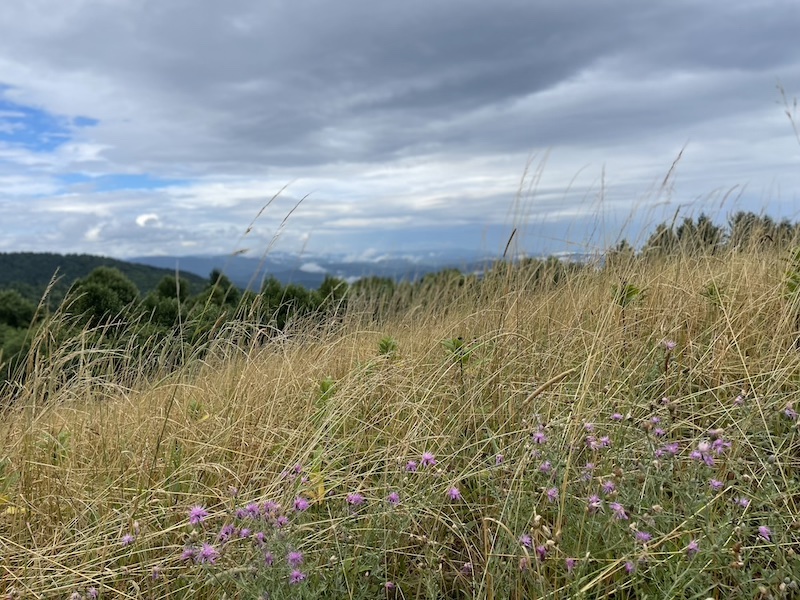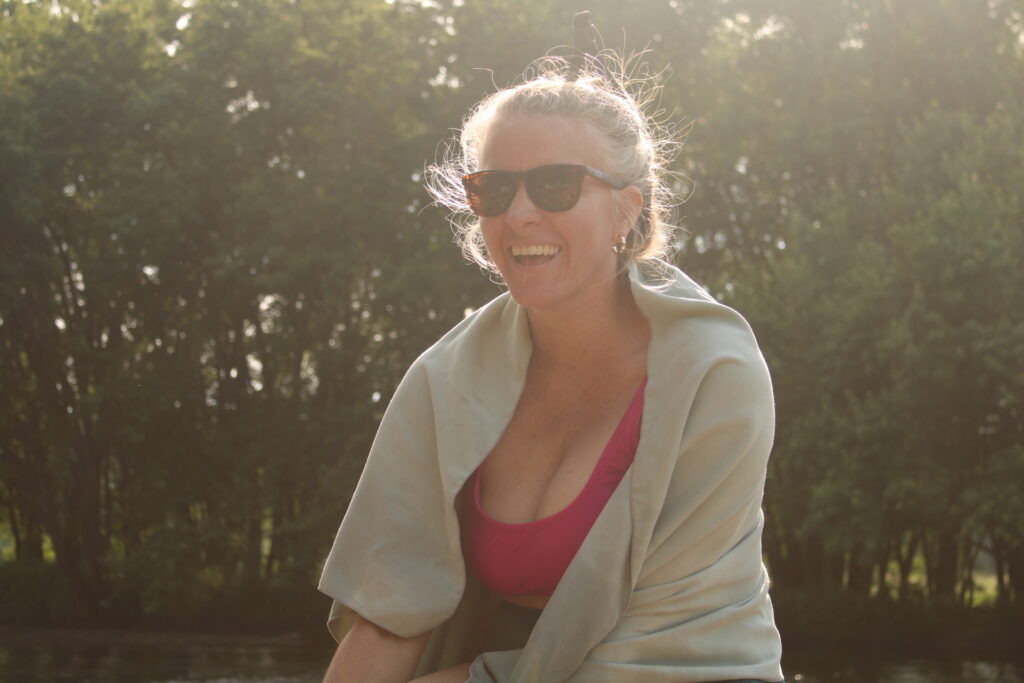
I have a few days left of summer and I am enjoying every last minute of it. Summer is when I live my best life and embody the mantra of teachers: Long Live Summer! This summer was particularly great because we did not go on a massive family adventure. No national parks or flying internationally. I love our big family trips, and we have one coming up this winter, but we needed a simple summer at home after our move and the big year of transitions and change.
I spent the last few weeks of summer hanging out in the Blue Ridge Mountains, which is a place I have been coming to since I was 10 years old and very dear to me. I am currently writing this newsletter from a deck chair, listening to the leaves rustling in the wind, watching the colors of the horizon change as a summer storm rolls in, and Sawyer Cat naps next to me. Like me, he enjoys the cooler weather and extra time outdoors. I can’t get over how much cooler it is here in the mountains than in the swamps of Florida.
The best part of my summer was attending Exeter for Educators conference at Phillips Exeter Academy in New Hampshire. I attended their Environmental Literature Institute. Even though I was only one of two science teachers in the group (the rest were English teachers who teach classes like nature writing or environmental literature) we were all educators interested in environmentally focused teaching and learning. It is not an understatement to say the week was profound and permanently altered my perspective.
A three-day paddling and camping trip in Northern Vermont, along the Connecticut River, was included in the experience. We spent our days paddling and our evenings around the campfire.
During the week, I learned about new things like the Harkness Method, but we also talked about things I already knew, like the importance of experiential learning and outdoor classrooms. The week validated what I intuitively knew to be true and has been the foundation of my science teaching ethos my whole career. Students need to get outside to learn to reach their full potential. We all need a deeper connection to nature.
I felt intimidated hanging out with English teachers, and at times, I thought they were speaking a different language, but it was so wonderful to hang out with people who like to talk books. I lost count of the times I heard, “Have you read?” and “Yes! I loved that one!” I texted an English teacher friend when I got home and said, “I think I might be a closet English teacher!” Part of the reason I started this Substack was to practice my writing and communication skills, so I’m not surprised that by the end of the conference, I decided to apply to a writing graduate program (something I have been thinking about for years but worried I was not up to the task). I feel more confident in my intellectual interests and my desire to lean into the “soft” sides of science and explore nature writing and environmental literature more. I want to continue teaching science, but I am simply less interested in data and more interested in stories these days.
Speaking of stories, I have a good one for you. This was written by another teacher on the trip. The “Stephanie” in his story is me. Never again will I say “Sure!” when someone asks me if I want to go backwards through river rapids in a canoe. Even though it was scary being knocked out of the canoe and having to use my paddle as a brace, so I didn’t slam my head against a boulder, it’s a memory I will cherish. Even in the moment of dread, there was excitement and an awakening of all my senses. I felt fully alive.
Bend by Drew Mullen
the impeded stream is the one that sings…Wendall Berry
When John asked if Stephanie wanted to go backwards through the rapids
She quickly replied “Sure!”
But rocks don’t care which way canoes or rivers travel
They accept confrontation and flow from any direction,
Allow themselves, like wrinkles on skin, to absorb time and space
Currents rarely remain constant
And rain can come at any time
Maps only tell us so much
Even meandering can bring danger
Just before the canoe tipped,
Stephanie jammed her paddle into the rock,
Bent the shaft nearly 45 degrees
Soaked from toe to torso,
She stood up looking for a hand to hold
It came from a 17-year old boy named Harvest –
Who knew the Kingdom despite or because of his youth,
Knew, somehow, that hands – like rivers and rocks – are meant to connect,
Are meant to take the shape of what they’re holding
And then let them go
I suppose that’s what these rivers and rocks can teach us:
That when crisis comes
We are capable of bending;
We are capable of connection,
Of taking the shape we must take
To return home

Thanks for reading! FYI, this is an excerpt from the Early Summer 2024 newsletter. To see more photos, articles, book recommendations, and a recipe for Tomato Quiche, click here.